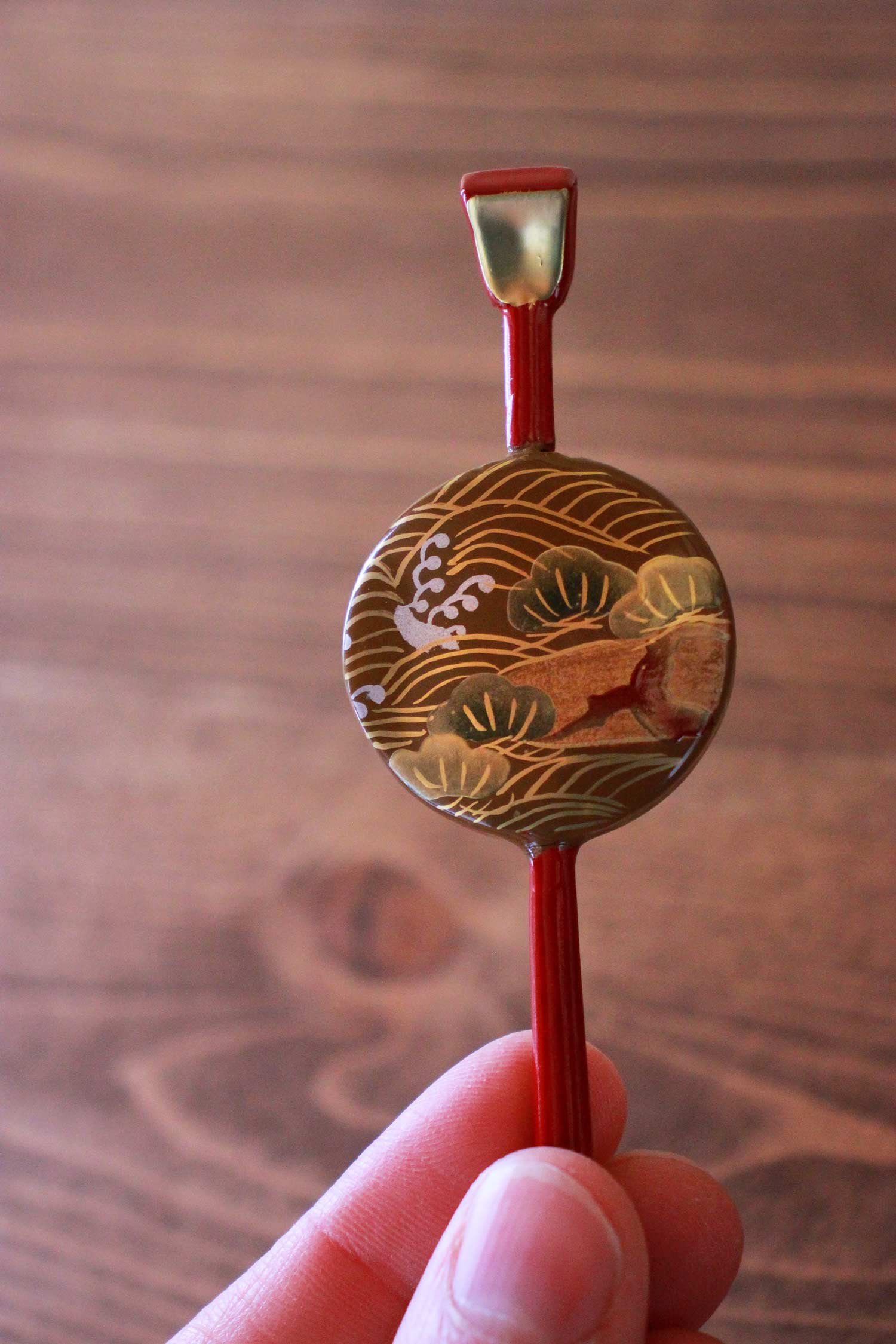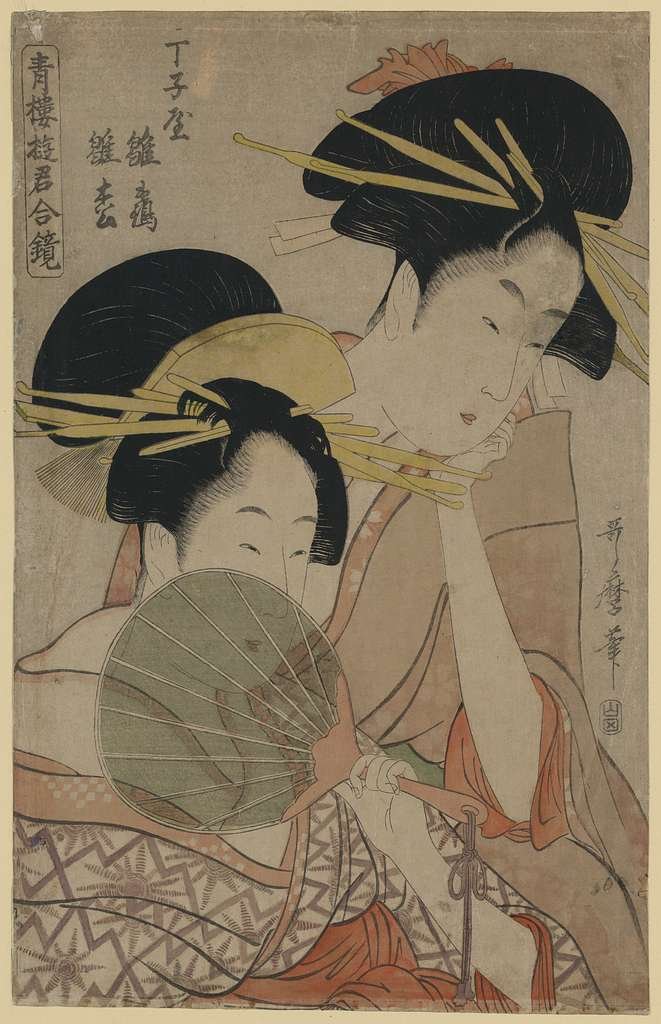Lacquered hair stick - Pine and bamboo
Vintage item
Details & Origin
Lacquered hair stick is one of the traditional ornaments for kimonos. This one is made of wood and covered with red lacquer and golden powder.
The hand-painted motif represents a pine tree surrounded by water waves on one side, and delicate bamboo leaves on the other.
Material
Lacquered wood
Dimension
length 17,5cm (6.9 in), circumference 3,2cm (1.2 in) width 0,5cm (0.2 in)
Condition
Old new, this item has never been used. It was found new in its original plastic wrap (visible in the last photo).
Sourced in Kyoto, Japan.
Vintage item
Details & Origin
Lacquered hair stick is one of the traditional ornaments for kimonos. This one is made of wood and covered with red lacquer and golden powder.
The hand-painted motif represents a pine tree surrounded by water waves on one side, and delicate bamboo leaves on the other.
Material
Lacquered wood
Dimension
length 17,5cm (6.9 in), circumference 3,2cm (1.2 in) width 0,5cm (0.2 in)
Condition
Old new, this item has never been used. It was found new in its original plastic wrap (visible in the last photo).
Sourced in Kyoto, Japan.
Vintage item
Details & Origin
Lacquered hair stick is one of the traditional ornaments for kimonos. This one is made of wood and covered with red lacquer and golden powder.
The hand-painted motif represents a pine tree surrounded by water waves on one side, and delicate bamboo leaves on the other.
Material
Lacquered wood
Dimension
length 17,5cm (6.9 in), circumference 3,2cm (1.2 in) width 0,5cm (0.2 in)
Condition
Old new, this item has never been used. It was found new in its original plastic wrap (visible in the last photo).
Sourced in Kyoto, Japan.
Short history of kanzashi
Kanzashi refers to traditional Japanese hair ornaments in general. Its history dates back to the Jomon period (14,000-300 BC), where early forms of the ornament were made using shells, bones, and stones.
During the Heian period (794-1185), lacquer was introduced as a popular material for hair ornaments. They were especially prized for their durability and the way they could be elaborately carved and decorated. This era was known for its focus on aesthetics and beauty, and the elaborate hairstyles and accessories of the time reflect this. At Mikan, we have a weakness for lacquered kanzashi and their intricate embellishments, so you might see this type of accessory more often than others.
During the Edo period (1603-1868), the kanzashi became increasingly popular as a fashion accessory for women, especially geishas and other courtesans. In parallel, the manufacture of lacquerware, including hair ornaments, developed into a specialised industry, and many skilled craftsmen devoted their lives to perfecting the craft. But hair ornaments continued to be made from a variety of materials, including silk, metal and tortoise shell. Kanzashi also became a symbol of social status, with more complicated and expensive designs reserved for women of higher rank.
In the Meiji period (1868-1912), Japan began to modernise and adopt Western fashion, and Kanzashi fell out of favour. However, it experienced a resurgence in the 20th century as traditional Japanese culture became more appreciated both in Japan and abroad. They were also made from other materials such as synthetic resin.
Today, Kanzashi are still worn by women on special occasions such as weddings and festivals, and the craft continues to be admired and celebrated as an important aspect of Japan's artistic heritage. Few artisans still make the ornament using traditional techniques and materials, although most accessories on the market today are industrially produced at lower costs to appeal to younger generations.










